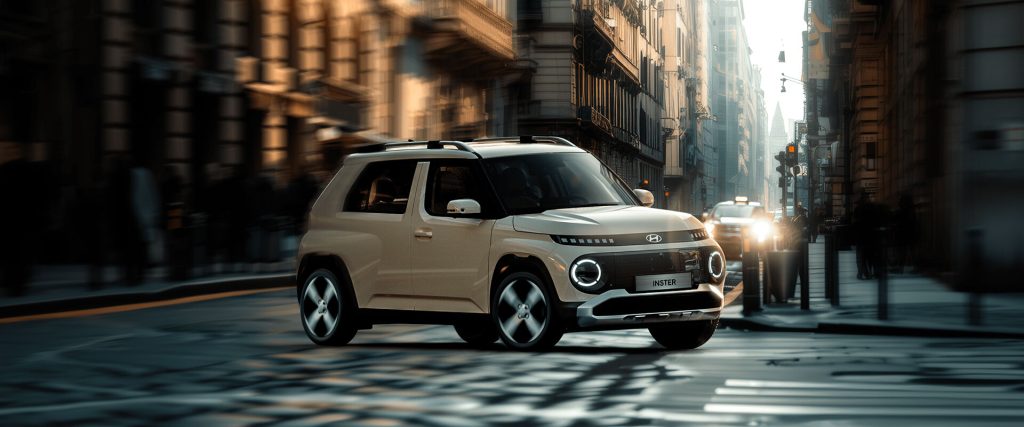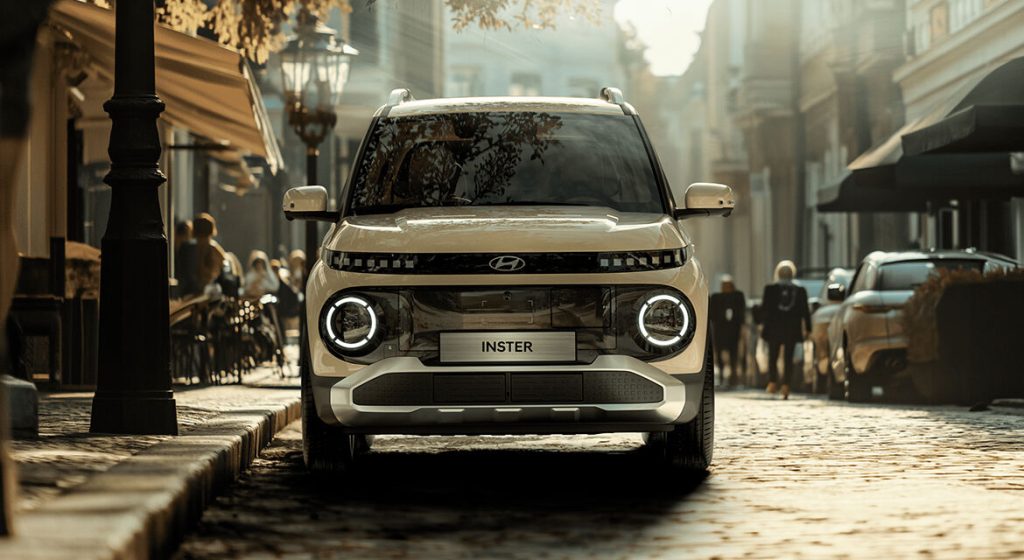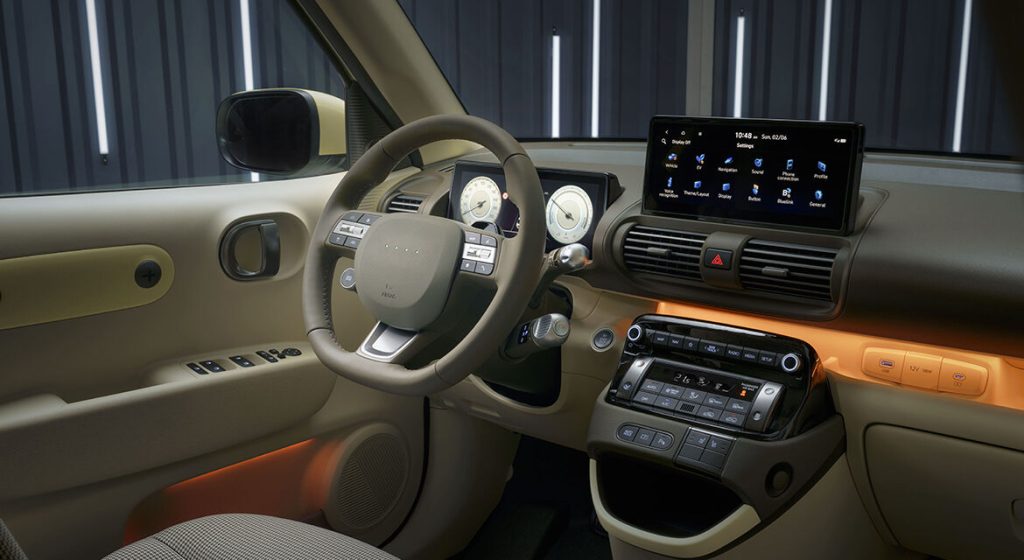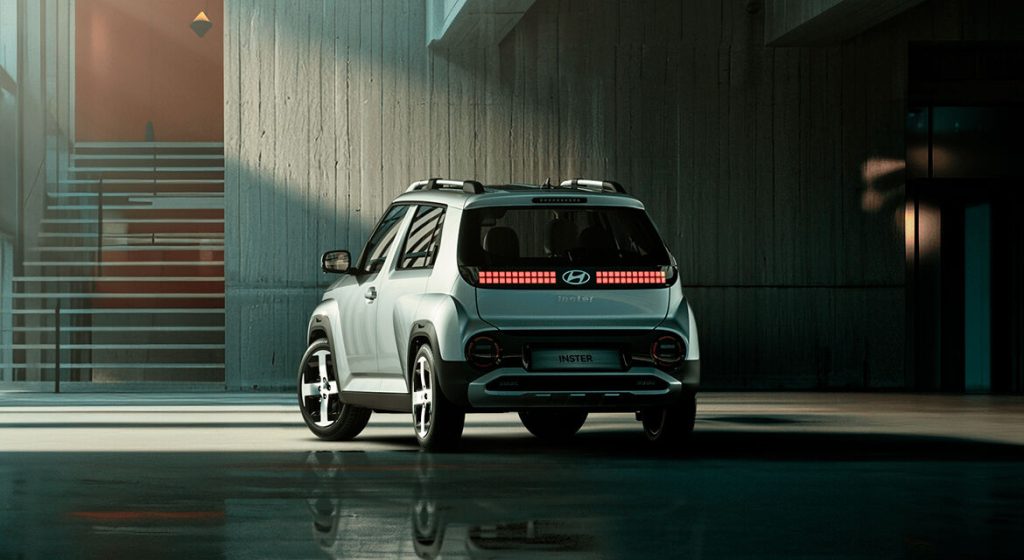Hyundai has revealed the details and images of the new Inster EV, the brand’s entry-level EV for global markets. The Inster looks quite identical to the popular Casper sub-compact car, the main difference lies in size, with the Inster being the bigger car.

Hyundai Inster EV- Hyundai’s New Mass-market EV
The Inster will act as Hyundai’s mass-market EV model upon its arrival in the market. The SUV shares most of its underpinnings with the Casper, which is currently sold with a sole petrol powertrain in South Korea. Hyundai has increased the Casper’s platform by 230 mm for the Inster, with 180 mm going to the wheelbase. The increased dimensions provide extra cabin space and additional space for the underfloor battery pack.

The Inster is 3.8 m long, 1.6 m wide and 1.6 mm tall, which is a bit shorter than the 3.9 m long than the Citroen eC3. It is quite a practical 5-seater with versatile interior configs, as per the brand. The 4 seats are fully foldable and the 2 rear seats can be slid and reclined to maximise legroom or even the boot space.
Talking about the features, it’s on par with the competition and Hyundai even believes it will stand out for its tech. Two 10.25-inch displays for the instrument cluster and infotainment touchscreen are standard among all the variants with the option the unlock and start using a smartphone as a key.

The Inster also gets Hyundai’s complete suite of driver assistance tech which includes a 360-degree parking camera and adaptive cruise control alongside a blind spot monitoring system that displays an image of the rear quarter view on the instrument panel.
As for the powertrain, the Inster gets two battery and motor options. The entry-level variants have a 96hp front-mounted drive unit that can go 0-100 kph in just 11.7 seconds and a top speed of 140 kph. It is paired with a 42 kWh battery pack with a range of around 300 km (claimed).

The higher-spec variants have a rather long range of 350km with boosted power to 113hp and 49kWh. The top speed is up to 150 kph, reducing the 0-100 kph sprint time to 10.6 seconds.

